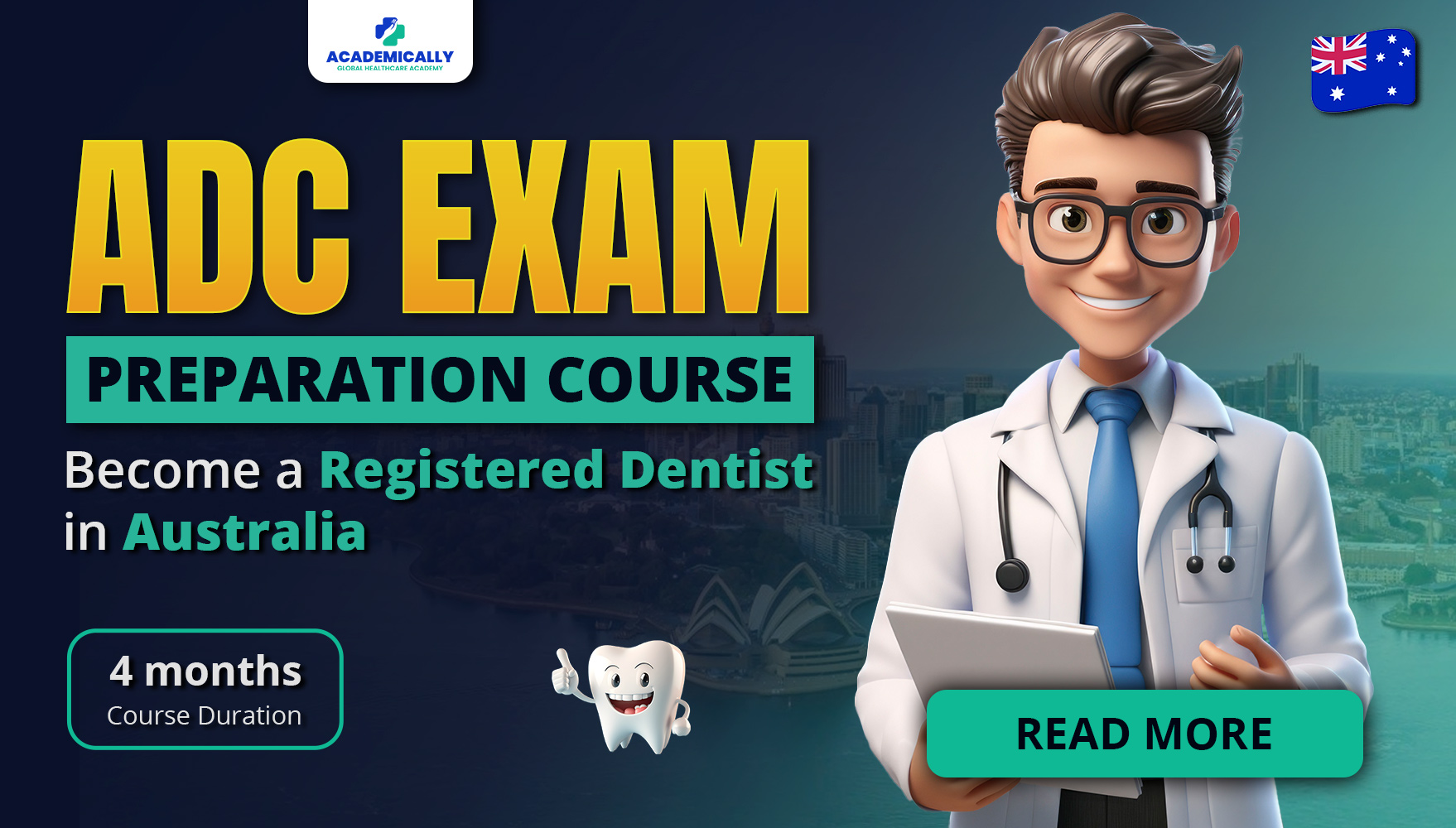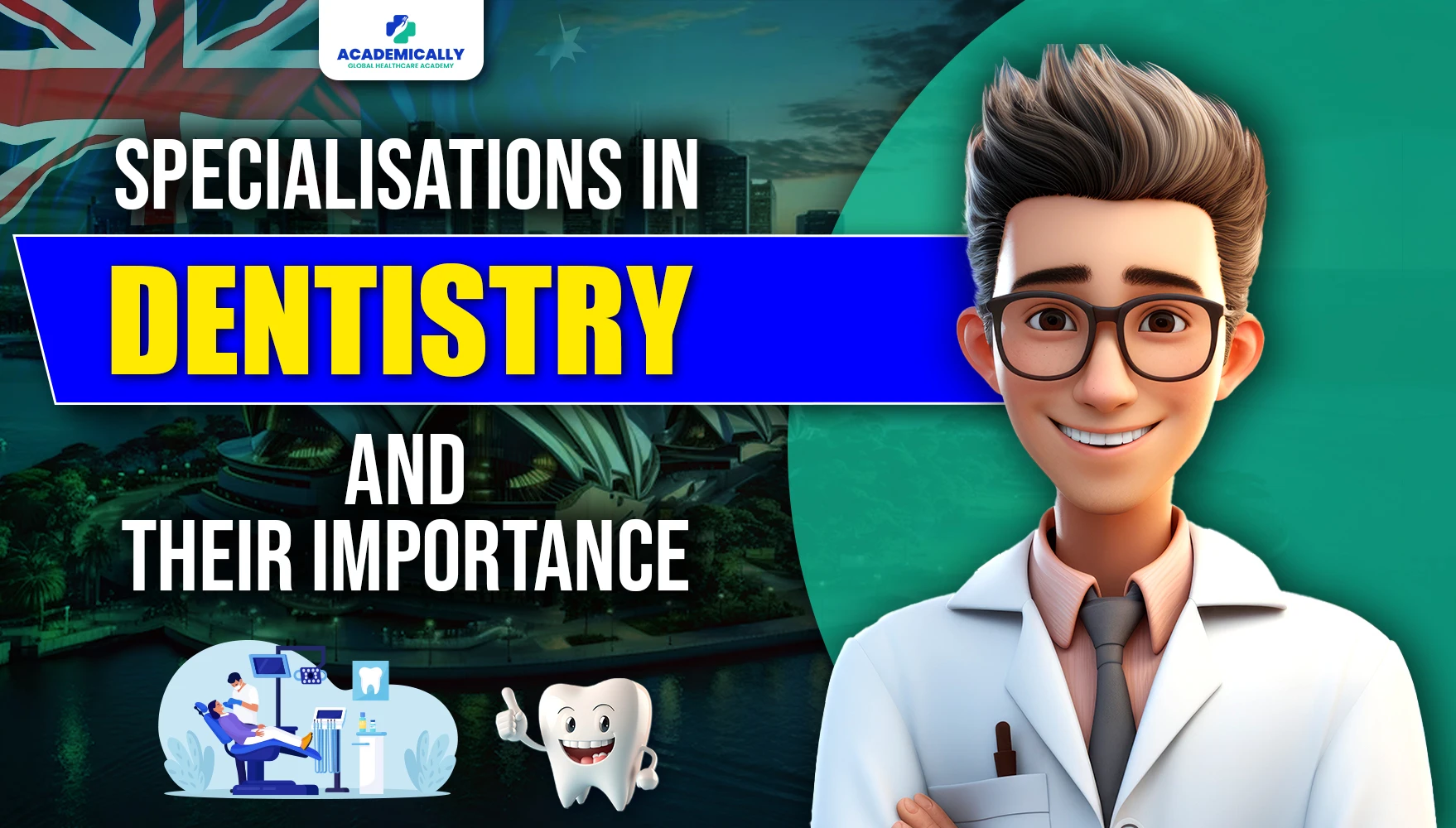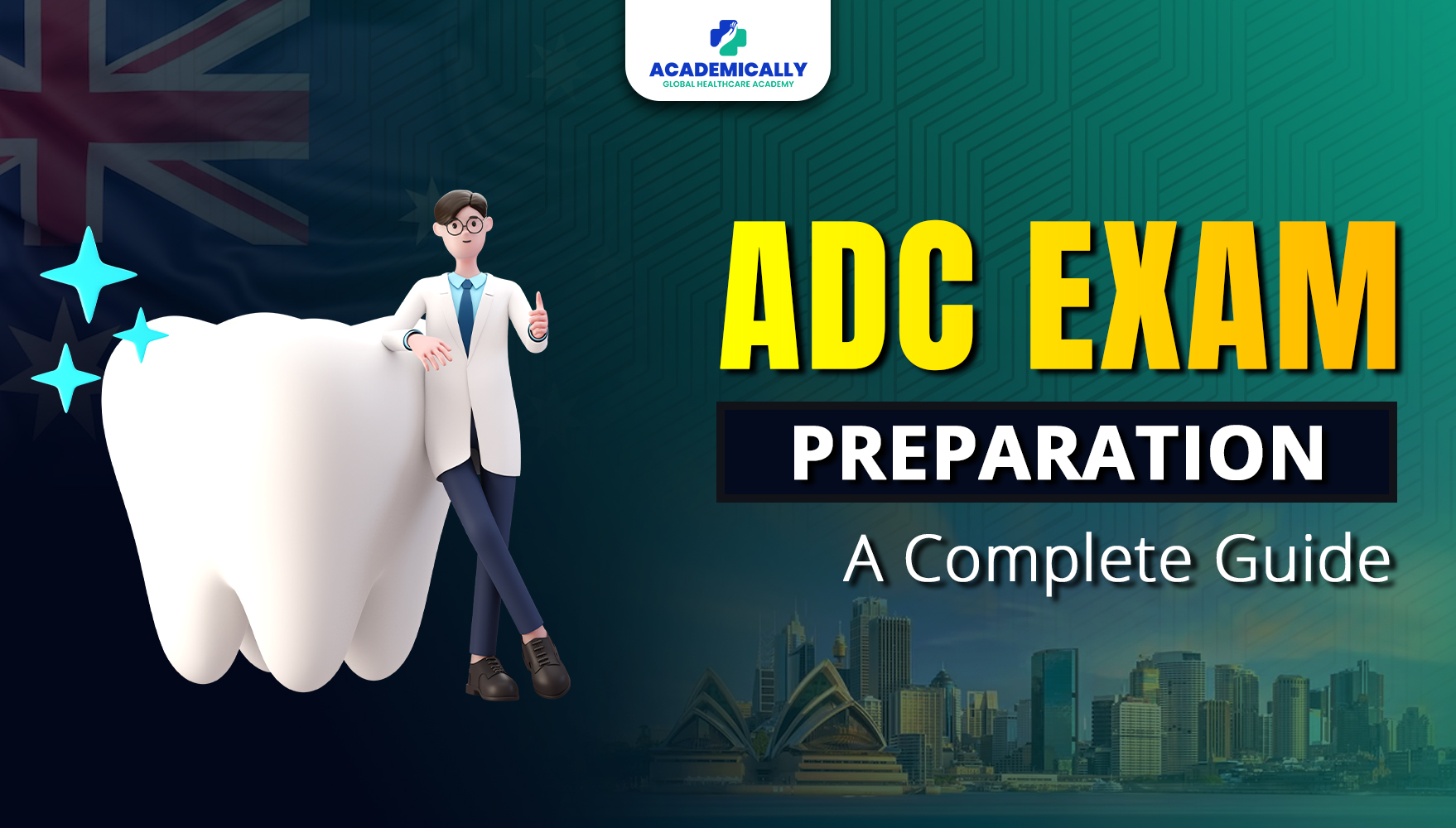What are Dental Specialisations?
Dental specialisations are areas of dentistry that require additional education and training beyond the BDS degree. There are specific areas within the field of dentistry where professionals focus on a particular aspect of oral health, undergoing advanced training and education to become experts in their chosen area. These specialisations allow dentists to gain in-depth knowledge and expertise in a specific area of oral health, such as root canal therapy, treating misaligned teeth, or gum disease. These specialisations ensure dentists provide more focused and specialised care, addressing complex dental issues with greater precision.
Specialisations in Dentistry
1. Orthodontics
Orthodontics deals with diagnosing, preventing, and correcting misaligned teeth and jaws. Orthodontists use devices like braces and aligners to achieve proper tooth alignment and correct bite issues.
2. Periodontics
Periodontics focuses on the prevention, diagnosis, and treatment of diseases affecting the gums and supporting structures of teeth. Periodontists specialise in managing gum disease, performing gum surgeries, and placing dental implants.
3. Endodontics
Endodontics is concerned with treating diseases of the dental pulp and tissues surrounding the roots of teeth. Endodontists are known for performing root canal therapy and other procedures to save and preserve teeth.
4. Oral and Maxillofacial Surgery
Oral and maxillofacial surgery involves surgical procedures on the mouth, jaw, and face. This specialisation covers a wide range of surgeries, from tooth extractions to complex jaw surgeries, facial trauma treatment, and reconstructive procedures.
5. Paediatric Dentistry
Paediatric dentistry, also known as pedodontics, is the branch of dentistry that deals with children's oral health. Paediatric dentists are trained to work with children, providing preventive care, addressing early dental issues, and guiding parents on oral health.
6. Prosthodontics
Prosthodontics focuses on restoring and replacing missing teeth and associated oral structures. Prosthodontists design and create dental prostheses such as crowns, bridges, dentures, and dental implants, helping restore function and aesthetics.
7. Oral Pathology
Oral pathology involves studying diseases that affect the oral cavity and adjacent structures. Oral pathologists analyse tissue samples and diagnose conditions like oral cancer, mucosal diseases, and other oral lesions.
8. Oral Medicine
Oral medicine specialises in diagnosing and managing diseases affecting the oral and maxillofacial region, especially those with systemic implications. Oral medicine specialists often deal with conditions like oral mucosal disorders, temporomandibular joint (TMJ) disorders, and facial pain syndromes.
9. Oral Radiology
Oral radiology is concerned with interpreting radiographic images of the oral and maxillofacial region to diagnose dental and facial conditions. Oral radiologists use imaging technologies like X-rays, CT scans, and MRIs to assist in diagnosis and treatment planning.
10. Public Health Dentistry
Public health dentistry, or community dentistry, focuses on promoting oral health at a community or population level. Specialists in this area work on public health campaigns, conduct community dental screenings, and develop programs to improve oral health in various populations.
Why Should You Specialise in Dentistry?
There are many reasons why a dentist might choose to specialise. Some dentists may want to gain in-depth knowledge and expertise in a particular area of dentistry. Others may be interested in a particular type of patient care, such as working with children or treating complex dental problems. Specialising can also lead to increased earning potential.
Career Options After BDS

Clinical Practice
The most common career path for BDS graduates is clinical practice, either by joining an existing dental clinic or setting up a private practice. This involves providing general dental services to patients, including preventive care, restorative treatments, and basic oral surgery.
Dental Specialisation
After BDS, you can choose to specialise in a specific area of dentistry. This involves pursuing postgraduate studies, such as a Master of Dental Surgery (MDS), in a chosen field like orthodontics, endodontics, periodontics, prosthodontics, oral surgery, or paediatric dentistry. Specialisation allows you to focus on a particular aspect of dentistry and gain advanced expertise.
Hospital Dentistry
Dentists can work in hospitals, providing care to patients with complex dental and oral health issues. This role often involves working alongside other healthcare professionals and may include treating patients with medical conditions that impact their oral health.
Academic and Research Positions
For those interested in education and research, a career in this field may be appealing. You can work as a faculty member in dental schools, teaching future dentists, conducting research, and contributing to advancements in dental science.
Dental Public Health
If you're passionate about community health, a career in dental public health may be the right fit. Public health dentists work on promoting oral health at a community or population level, developing public health campaigns, and addressing disparities in dental care access.
Government and Regulatory Bodies
Dentists can also work with government agencies or regulatory bodies, contributing to policy-making, dental regulations, and public health initiatives. This path offers an opportunity to influence the broader framework of dental care and public health.
Dental Product Development and Industry
The dental industry offers career opportunities in product development, marketing, and sales. Dentists with an interest in technology and innovation can work with dental companies to develop new products and technologies or represent dental products in marketing and sales roles.
Nonprofit and Humanitarian Work
Some dentists choose to work with nonprofit organisations and humanitarian groups, providing dental care to underserved communities both locally and globally. This career path allows you to make a significant impact on public health and oral care accessibility.
Dental Consultancy
Experienced dentists may work as consultants, offering expertise to dental practices, healthcare organisations, or insurance companies. This role involves providing guidance on dental care, practice management, and quality assurance.
Forensic Odontology
Forensic odontology involves using dental knowledge to assist in legal and criminal investigations. Dentists in this field analyse dental evidence, identify human remains, and contribute to criminal investigations.
Dental Cosmetology
Dental cosmetology is a branch of dentistry that focuses on enhancing the appearance of a patient's smile. This career path is ideal for those with a keen eye for aesthetics and a passion for making people feel more confident about their appearance.
Dental Insurance
Dental insurance involves working with insurance companies to manage dental plans, claims, and policyholder services. This career path is suited to individuals with a keen understanding of dental procedures and a desire to work in a business-oriented environment.
Dental Blogger
Dental blogging allows you to share your knowledge, insights, and experiences in the field of dentistry with a broader audience. This career path is great for those with a passion for writing and communication.
Overseas Dental Career
An overseas dental career involves working in a country other than your own, providing dental care in various settings. This career path offers the opportunity to experience different cultures, learn new practices, and expand your professional network. If you aim to build a dental career in Australia, you can do this by clearing the ADC exam.
The Australian Dental Council exam is the primary step to seeking registration to practise in Australia. To get started with your ADC journey, sign up for the ADC exam preparation course by Academically.

Conclusion
Dental specialisations offer dentists the opportunity to focus their careers on specific aspects of oral health, allowing them to develop deep expertise and provide specialised care. These specialisations play a crucial role in enhancing oral health outcomes for patients and communities.
These career options after BDS offer a range of exciting opportunities. Whether you're interested in the aesthetic aspects of dental cosmetology, the business side of dental insurance, the creative world of dental blogging, or the adventure of an overseas dental career, there's a path for you. Each career choice requires a unique set of skills and expertise, but all provide the opportunity to make a significant impact in the field of dentistry.
Fill up this form for a free one on one counselling session.




